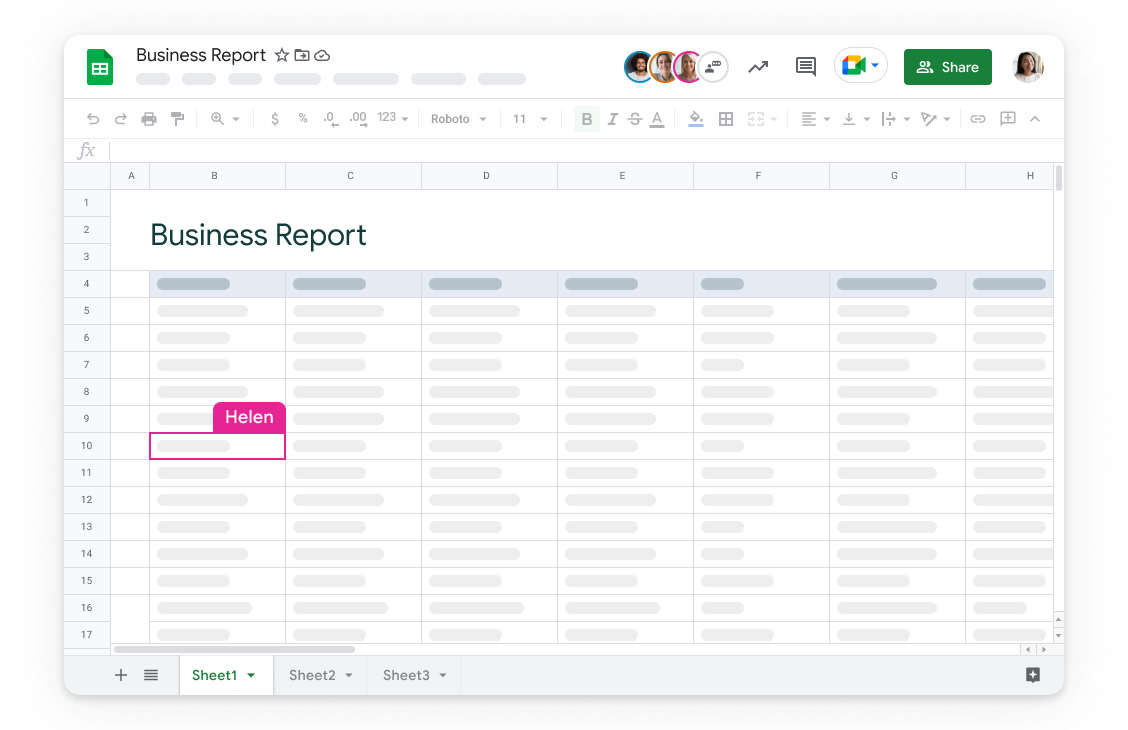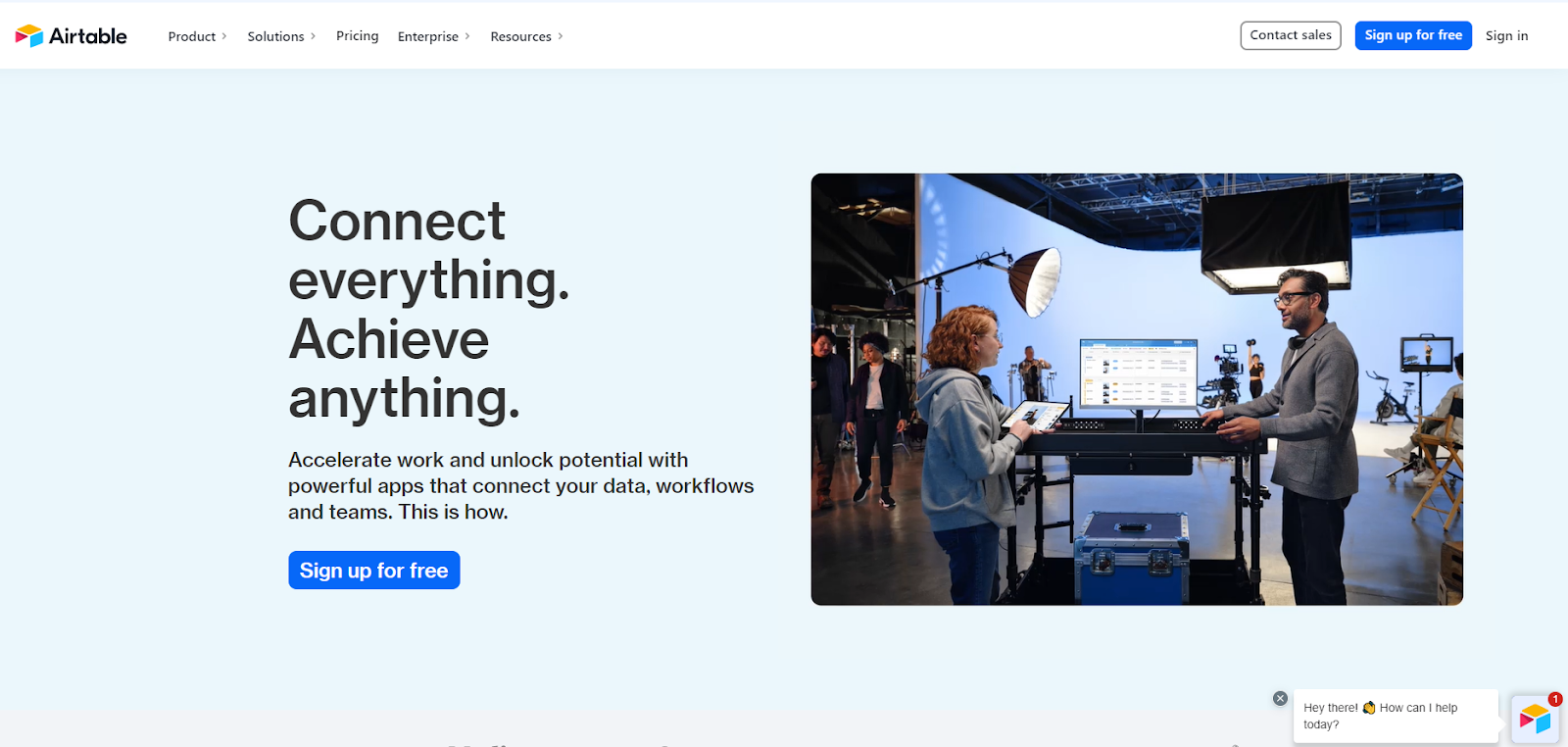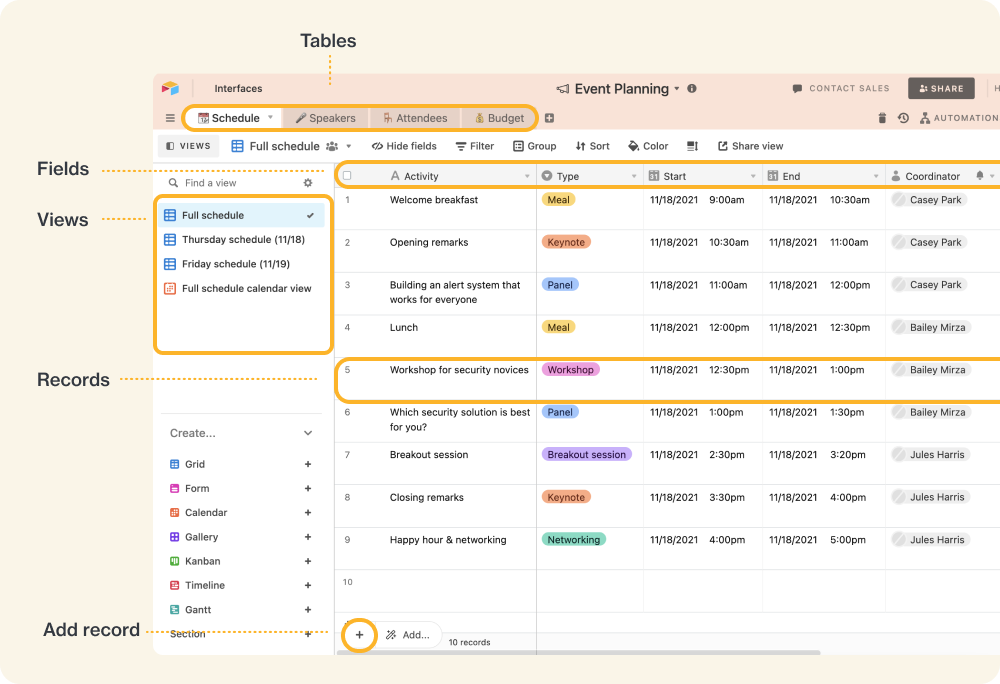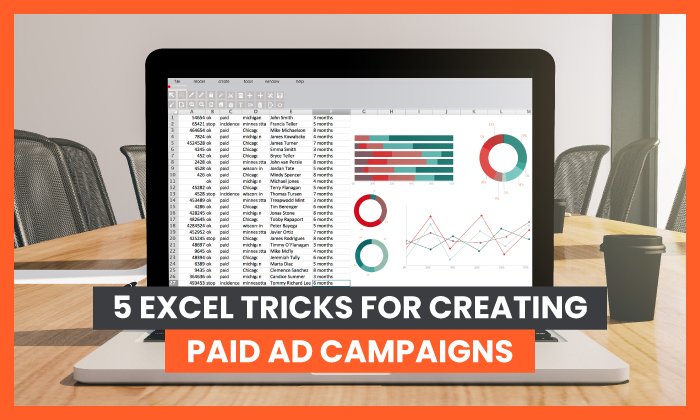The 15 Best Excel Alternatives

By Daniel Doan
Excel is one of the world’s most popular spreadsheet programs, with an estimated 1.1 billion people using it for data organization, analysis, and reporting.
While it’s a commendable data system for teams within a business, it’s not free. A standalone copy of Excel costs $159.99, and a personal Office subscription is $69.99 per year for one user.
Microsoft Excel might be the big cheese of data analysis and management, but it’s not the only tool in town.
So, whether you’re looking for a free alternative, a cloud-based solution, or a tool with more advanced features, this article has something for you.
1. Google Sheets
- Price: Free for personal use and small teams; paid plans start at $6 a user per month for business teams.
- Best for: Teams already using Google Drive.
- What we like: This is the best, free Excel alternative that offers real-time collaboration.
Brought to you by the Google Drive suite of apps, Google Sheets is a top-tier choice for anyone looking for an Excel alternative.
This cloud-based spreadsheet app has many of the same features as Excel (charts, formulas, and real-time collaboration), making it the best free Excel alternative.
That said, if you don’t mind paying a fee, you can get more storage and advanced features with other tools on this list.
Pros
- Free to use
- Easy collaboration
- Cloud-based and accessible from anywhere
Cons
- Limited features compared to Excel
- Can be slower than desktop applications
- May have compatibility issues with Microsoft Office files
2. Airtable
- Price: Free for personal use and small teams; paid plans start at $12 a user per month for business teams.
- Best for: Teams that need a database solution.
- What we like: Airtable’s advanced features combine spreadsheet and database components.
Airtable is a cloud-based platform that combines spreadsheet and database features. It’s designed to be flexible and customizable and offers a variety of views, including grid, calendar, and Kanban.
Pros
- Combines spreadsheet and database features, offering a unique approach to data management
- Designed to be a collaborative solution for teams, including real-time collaboration and commenting features
- Offers a range of templates for different use cases, including project management and content planning
- Integrates with a range of other apps and platforms, including Slack and Zapier
- Offers a free version, as well as paid options for businesses that need more storage or advanced features
Cons
- Limited advanced features compared to other spreadsheet applications
- May not be suitable …read more
Source:: HubSpot Blog

![Download 10 Excel Templates for Marketers [Free Kit]](https://no-cache.hubspot.com/cta/default/53/9ff7a4fe-5293-496c-acca-566bc6e73f42.png)











